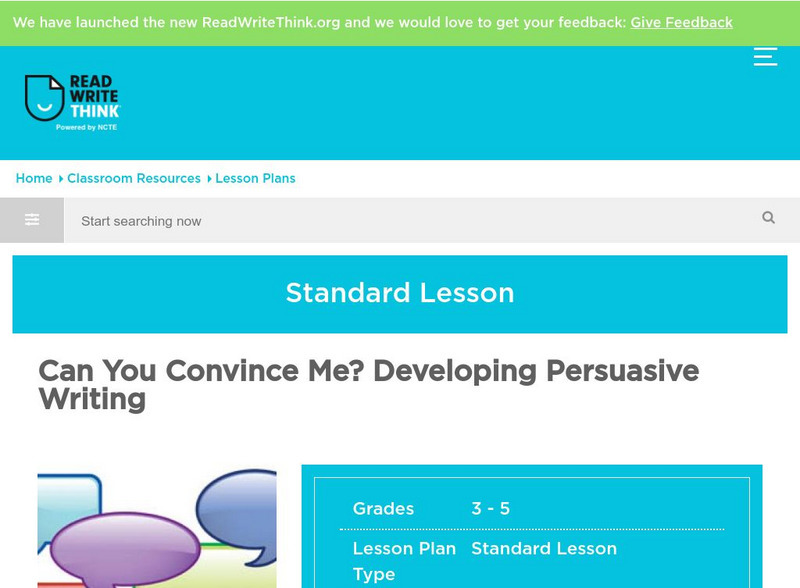Curated OER
Adjectives
Learners are encouraged to think about the adjectives they choose and to steer away from adjectives that have become meaningless through overuse, such as "nice" and "good." They then add meaning and interest to sentences.
Reading Rockets
Reading Rockets: Descriptive Writing
This is a comprehensive article about what descriptive writing including what it is, why to teach it and strategies to teach it. It also features two videos Five Senses Graphic Organizer and Writing Poems as well as an annotated list of...
Reading Rockets
Reading Rockets: Looking at Writing: Third Grade
In this section, you'll find writing assessment resources, writing strategies, and additional tip sheets for teachers and parents on how to help third graders build strong writing skills. You'll also find videos on teaching writing....
ReadWriteThink
Read Write Think: Can You Convince Me?: Developing Persuasive Writing
This effective tool for teaching persuasive writing contains thorough lesson plans which encourage students to take a stance and create arguments to support their position. Contains printable worksheets, rubrics, a PowerPoint...
New Zealand Ministry of Education
Nz Ministry of Education: Survival of the Fittest
Students will gather, select, record, interpret, and present information on survivors and their survival strategies gained from reading the novel Hatchet and true life survival biographies. They will produce a piece of comparative...
Library of Congress
Loc: Teachers: Personal Stories and Primary Sources
Students will explore the value of personal stories and first-hand accounts when exploring history, in this case, the events of the early twentieth century, which included World War I and the Great Depression. Through this five-unit...
Library and Archives Canada
Nlc: Defining Primary and Secondary Sources
Libraries and archives hold documents and books that can be used for your research projects. Learn how to divide and identify them into primary and secondary sources in this tutorial.





